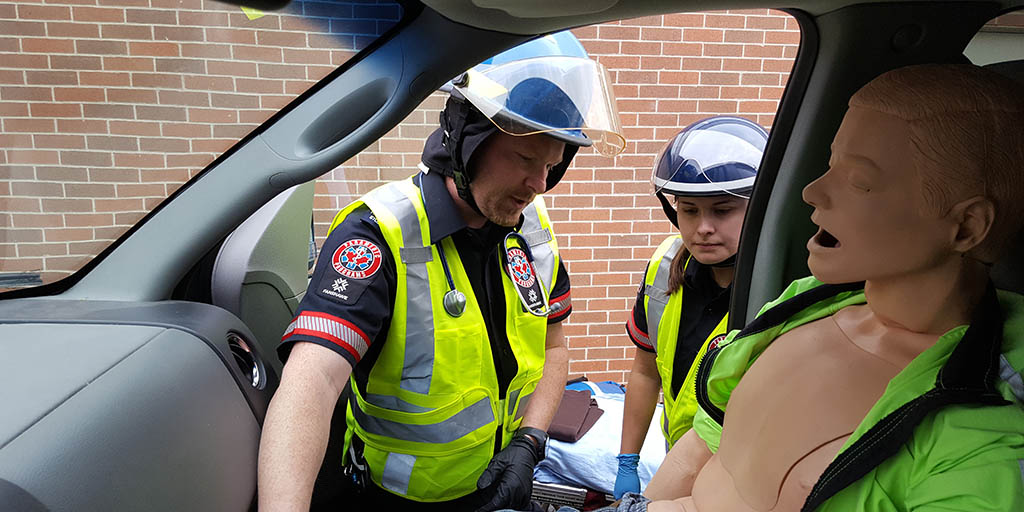Fanshawe paramedic students publish research projects
 CREDIT: ALAN BATT
CREDIT: ALAN BATTTwo groups of Fanshawe paramedic students have had their research on empathy levels in Canadian paramedics published.
Two groups of Fanshawe paramedic students have developed research projects that are now published.
According to two Fanshawe Corporate Communications notices, the students have been published in peer-reviewed publications, “International Paramedic Practice” (Vol.8 No 3.) and The “International Journals of Caring Sciences” (September to December 2018, Vol. 11, Issue 3).
According to Alan Batt, Fanshawe professor of the primary and advanced care paramedic programs, the students have now graduated and the majority of them are working as paramedics in Ontario.
The first group was led by Lucy Kus and was comprised of Kus, Cassidy Gosling and Taylor Wilson. The second group was led by Alberto Pagano and was comprised of Pagano, Kate Robinson, Chris Ricketts, Jenalyn Cundy- Jones, Lisa Henderson and Wes Cartwright.
“Our research team was very well balanced and a few of us had previous experience with research and publications prior to beginning this research study so we worked well to split the work evenly and all added something unique to the team,” Pagano said.
Both of the groups created research projects exploring empathy levels in Canadian paramedic students.
According to Batt, the only previous studies of empathy in paramedic students were conducted in Australia.
“The research contributions of student paramedics is something we need to encourage,” Batt said. “Until these two Fanshawe publications, there was nothing in the literature regarding empathy levels among Canadian paramedic students.”
Pagano said that his team used The Medical Conditions Regards Scale (MCRS) to measure empathy levels and Fanshawe played an active role in supporting them throughout the process.
“The amount of research in the field of paramedicine is very scarce so being able to add to the research and support the profession is very rewarding,” Pagano said. “It really helps put perspective on how relatively new the profession of paramedicine is and how far we still have to go to understand what the best practice is for each type of patient we encounter.”
Kus said the research study exposed students in five different conditions and they tested if empathy levels could change over the course of the two-year program.
“As a group, we noticed on our own ride-outs how paramedic's attitudes changed with the call type, or patient and how some medics seemed more burnt out than others,” Kus said. “I am so proud of the work we decided to put in after graduation to see this to the end and the reward is gratifying.”
According to Batt, his role was to supervise the research projects and work with the groups to edit their submitted assignments.
“The publication and peer-review process can be both intimidating and confusing to navigate, so being able to guide them through the process is important,” Batt said. “Mentoring is essential to the development of novice researchers and key to their success in the publication process.”
Both Kus and Pagano said that Fanshawe's research class gave their group an introduction to collecting primary data and writing a report from the results.
“With Alan Batt's motivation and support, we put the work in to get our research up to par for publishing,” Kus said.
According to Batt, Fanshawe students and faculty have published over 30 articles in peer-reviewed and professional publications since 2015. The first peer-reviewed publication from a student in the paramedic program was at the beginning of 2018.
“There are nothing but benefits for students by getting published, whether it is peer-reviewed or not,” Batt said. “Not only to get to add a publication to their resume, they get the opportunity to contribute something to the profession that is tangible and may have real-world impact.”














